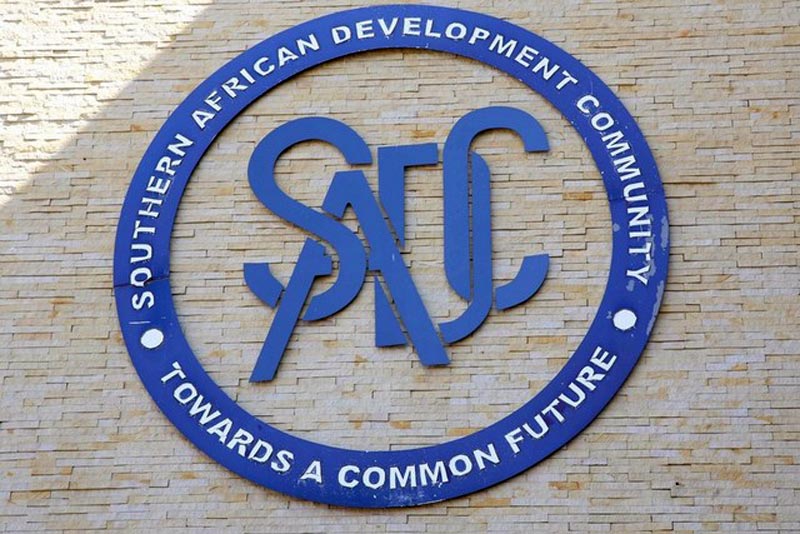This moral question is one that often confronts most people at some point in their lives. Young black professionals have to confront it in the form of black tax. We all have to consider it in some form when we encounter beggars on the streets. It’s a question that interrogates our internal value system, our capacity for empathy. Outside of myself, outside of my family and loved ones, what duty do I owe to the other, if any?
This moral question also comes up at the level of the state and at the level of the region. Trigger moments like pandemics, human rights abuses, environmental catastrophes and elections frequently bring the question sharply back to the surface. Recent events in Zimbabwe have brought that question back to the fore once again.
Hopewell Chin’ono, a Harvard trained investigative journalist, was arrested at his home on Monday 20 July and accused of inciting public violence for reporting on calls by Jacob Ngarivhume, an opposition politician, for a nationwide protest. This protest was scheduled for Friday 31 July and themed as a “national protest against corruption and political challenges”. Ngarivhume himself was also arrested on similar charges.
Many did not find the charges to be authentic as Chin’ono has recently, through his reporting, exposed corruption scandals implicating people within President Emmerson Mnangagwa’s inner circle. His exposé on Covid-19 corruption to the value of R1.020 billion led to the dismissal of the then-minister of health Obadiah Moyo and his arrest on charges of corruption.
Still in prison
It was this reporting and savvy use of social media which contributed to wide-scale public frustration with the levels of corruption in Zimbabwe. In fact, when he was arrested his Twitter account was immediately deleted, a further indication that this was about silencing an effective critic and not about security concerns.
While the corrupt minister was given bail immediately and did not see the inside of a prison cell, Chin’ono and his co-accused have been repeatedly denied bail and are still in prison 10 days after their arrest.
So the question once again is – what is the Southern African Development Community (SADC) going to do about it? What is South Africa going to do? What are the obligations of SADC and the African Union to Zimbabweans?
The crisis in Zimbabwe worsens while the influential leaders in the region adhere to a concept of quiet diplomacy, or to a head-in-the-sand approach. There seems to be some adherence to the principle of sovereignty and to the solidarity of having fought in a liberation struggle together.
I think it’s time to stop putting the burden just on the citizens of Zimbabwe to free themselves from this oppressive Zanu-PF entity. They have made efforts and those efforts are always suffocated in the incubation phase.
On 13 May, three female opposition youth leaders were abducted, tortured and sexually molested after taking part in a protest. They had to be hospitalised when they were eventually found. They were missing for three days and only showed up after widespread outcry on social media. These young women Cecilia Chimbiri, 33, Joana Mamombe, 27, and Nestai Marova, 25, were then charged with faking their own abductions by the state. They have been in prison ever since and have been denied bail.
These examples illustrate one truth. The regime is violent, the regime has a sophisticated intelligence infrastructure and the regime is willing to arrest journalists, opposition leaders and activists to remain in power.
To be honest, the regime is willing to do anything necessary to remain in power, and quite frequently they have shown that through action – from the Gukurahundi massacres in Matabeleland in the 80s to the disappearance of political activists like Itai Dzamara, whose family has been searching for him since March 2015 when he disappeared under mysterious circumstances.
To simply say to the people of Zimbabwe “why don’t you do something about it”, is to ignore the impact of 40 years of repression, to ignore the disproportionate imbalance of power between the citizens and the state.
Looking at it from an economic perspective, the Zimbabwean market is one of the largest export markets for South African goods and services. However, that market is restricted in what it can purchase because of the prevailing economic collapse. This economic collapse is due to the prevailing political climate.
In order to truly resuscitate the Zimbabwean economy, Zanu-PF will have to be confronted. A Zimbabwe that is back on track, a Zimbabwe that is growing economically will contribute to a South Africa that is growing economically.
There was a time when African leaders helped civilians to fight an evil and oppressive regime. Zambia was a base for Zimbabwean freedom fighters. Mozambique was a base for Zimbabwean freedom fighters. Members of uMkhonto we Sizwe were based in many countries in the region.
At that time, the concept of respecting sovereignty was understood to be illegitimate because the colonial and apartheid entities were clearly not legitimate and were suppressing the will of the majority. At that time, it was understood that doing nothing was not an option.
It can honestly be said that Zanu-PF has reached that same standard of illegitimacy. They can no longer be declared legitimate custodians of democracy and are acting in ways that subvert the will, the well-being and the legitimate aspirations of the people.
The media has been suppressed. Political parties have been harassed and suppressed. People have been prevented from exercising their political rights. The Constitution of Zimbabwe has been violated by the administration entrusted with upholding it. When do we reach the point where quiet diplomacy is discarded and active diplomacy is engaged?

